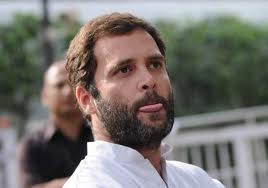 New Delhi, April 15: BJP today took a dig at Rahul Gandhi for his reported comment that he is a brahman, saying it shows that he and Congress have lost patience after failing to get the mandate in the Uttar Pradesh elections.
New Delhi, April 15: BJP today took a dig at Rahul Gandhi for his reported comment that he is a brahman, saying it shows that he and Congress have lost patience after failing to get the mandate in the Uttar Pradesh elections.
"Now this is crossing all limits that Rahul Gandhi has started informing what his caste is ... that he is a brahman. Congress has lost all patience after losing the mandate in Uttar Pradesh elections," BJP spokesperson Prakash Javadekar said.
During a stock-taking meeting of Congress on the UP poll debacle, Rahul had reportedly rebutted claims from some party leaders that the party was not giving due significance to brahmans.
"I am a brahman and general secretary of the party," Rahul reportedly said.
BJP used this opportunity to take potshots at the Congress general secretary.
"In the UP elections, Congress had talked about religion when it promised reservations on religious lines and in doing so it had played communal politics," Javadekar said.
Both Congress and BJP have been analysing what went wrong for them in the politically crucial state of Uttar Pradesh as the poll results were way below their expectations.
Interestingly, both these parties feel they should have wooed the upper castes, especially the brahmans, to increase their seat tally.





Comments
Add new comment